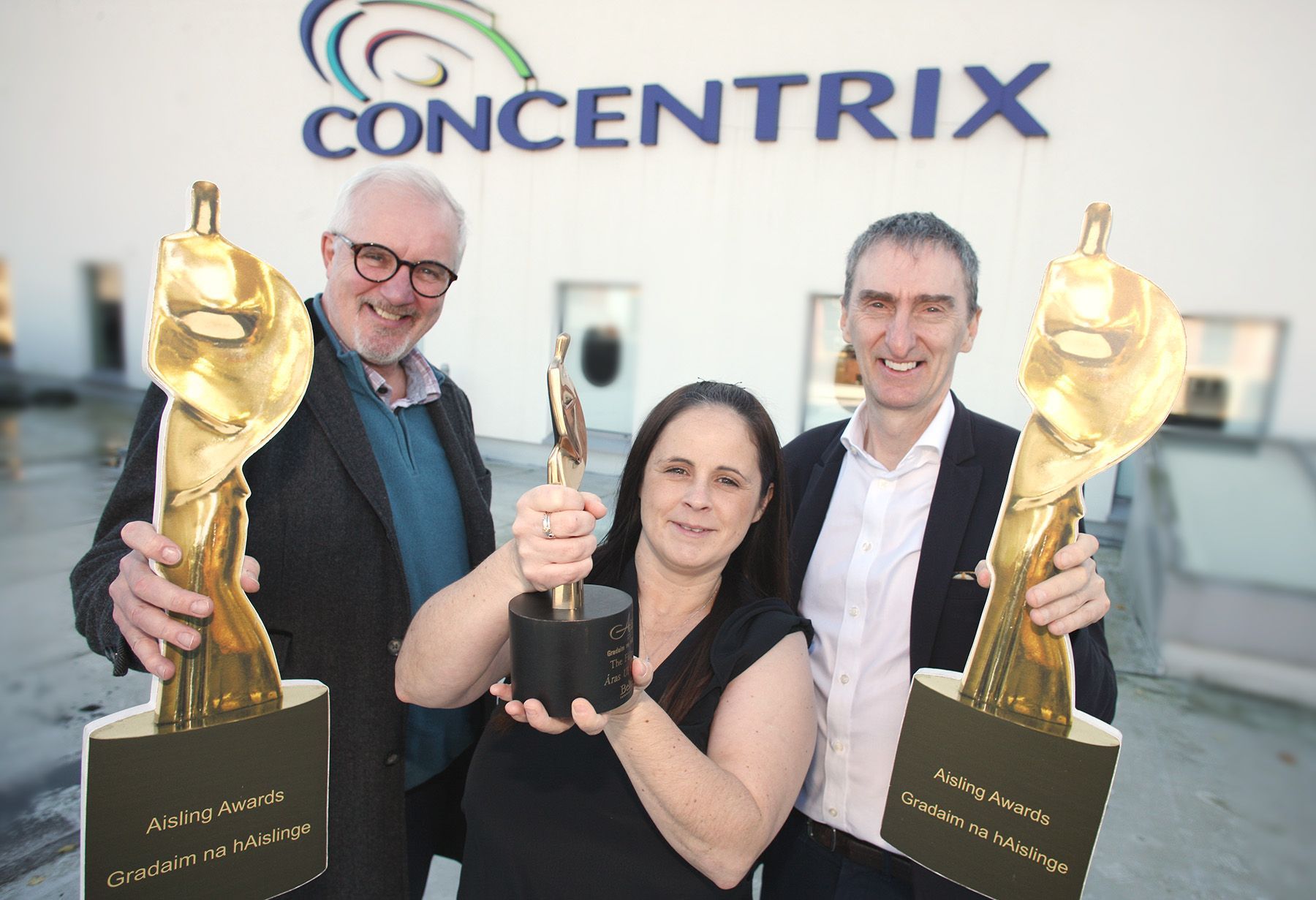WITH every passing year the need to come to the aid of our environment becomes ever more urgent. While politicians bicker and perform for the cameras, this future of this place we call home becomes more and more uncertain.
If there is good cause for concern about the performance of those we’ve elected to do such work for us, the efforts of environmental champions on the ground continue apace with a passion, energy and commitment that we can only dream of more powerful people emulating.
Five organisations have been nominated for this year’s Aisling Guardian of the Environment Award, sponsored by Concentrix, a global leader in technology and services with a long-standing commitment to the city of Belfast – and to its future.
•National Park Cities offers a unique and ambitious – but incredibly simple – suggestion for shifting our most basic understanding of what the city of Belfast should be – and who it should be for.
CITY SLICKER: Conor McKinney envisions Belfast as a National Park 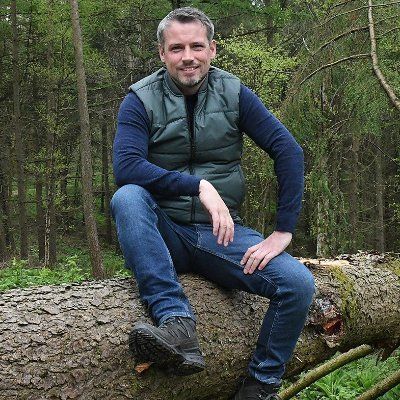
It’s a ground-up project which involves the city adopting a holistic set of principles which ensure that people have access to nature. In short, it promotes the idea of cities becoming populated National Parks.
It's a growing movement that is fast taking hold across the world – London became the first National Park City in 2019, with a host of other nations having earned the title and many others queuing up to obtain it.
“There are seven different strands like trees and wildlife and also access to green space, as well as culture and quality of life and shared decision making,” says NPC Belfast promoter Conor McKinney. “We would need to demonstrate that Belfast can tick all those boxes.”
•Tim McCann is the first head of the GAA’s newly-minted Sporting Nature Project.
AWARD-WINNER: Tim McCann (right) has already gained plaudits for his pioneering work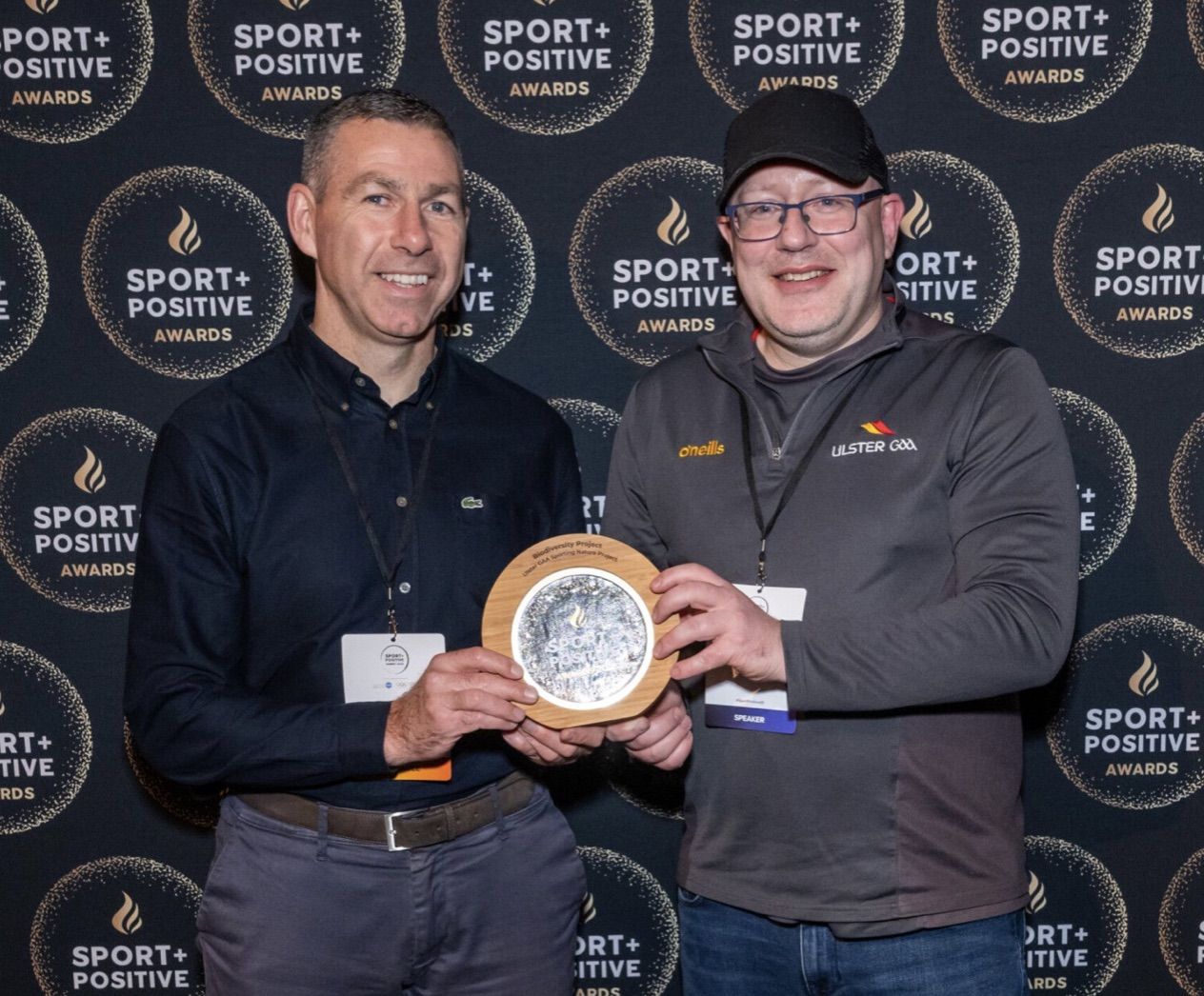
The island’s premier sports organisation touches so many aspect of so many people’s lives that it was only a matter of time before the GAA turned its attention to the state of the green world around us.
Tim’s a lucky guy. His job involves two things that are passions of his: Gaelic sports and nature. The three-year project involves 30 clubs across the North – four of them in Belfast – receiving seed funding to improve and promote the natural world in and around their sporting grounds.
Tim’s travelling around the clubs dispensing advice on how to improve the natural wonders that already exist at club grounds – and encouraging other wonders to thrive.
One day he’ll be putting up bat boxes, the next he’ll be discussing butterfly habitats; at one club he’ll be monitoring the local fox population, at another he’ll be considering ways to be protect and enhance the plants, trees and flowers that grow there.
And, of course, when he gets the chance he’ll take a break to watch a game.
As Tim himself says with a smile: “If Carlsberg did jobs…”
•St James’ Community Farm is about to celebrate its tenth year of providing a safe and welcoming space for animals, foods – and people – to grow.
TOWN AND COUNTRY: Animals and people live harmoniously side by side at St James' Community Farm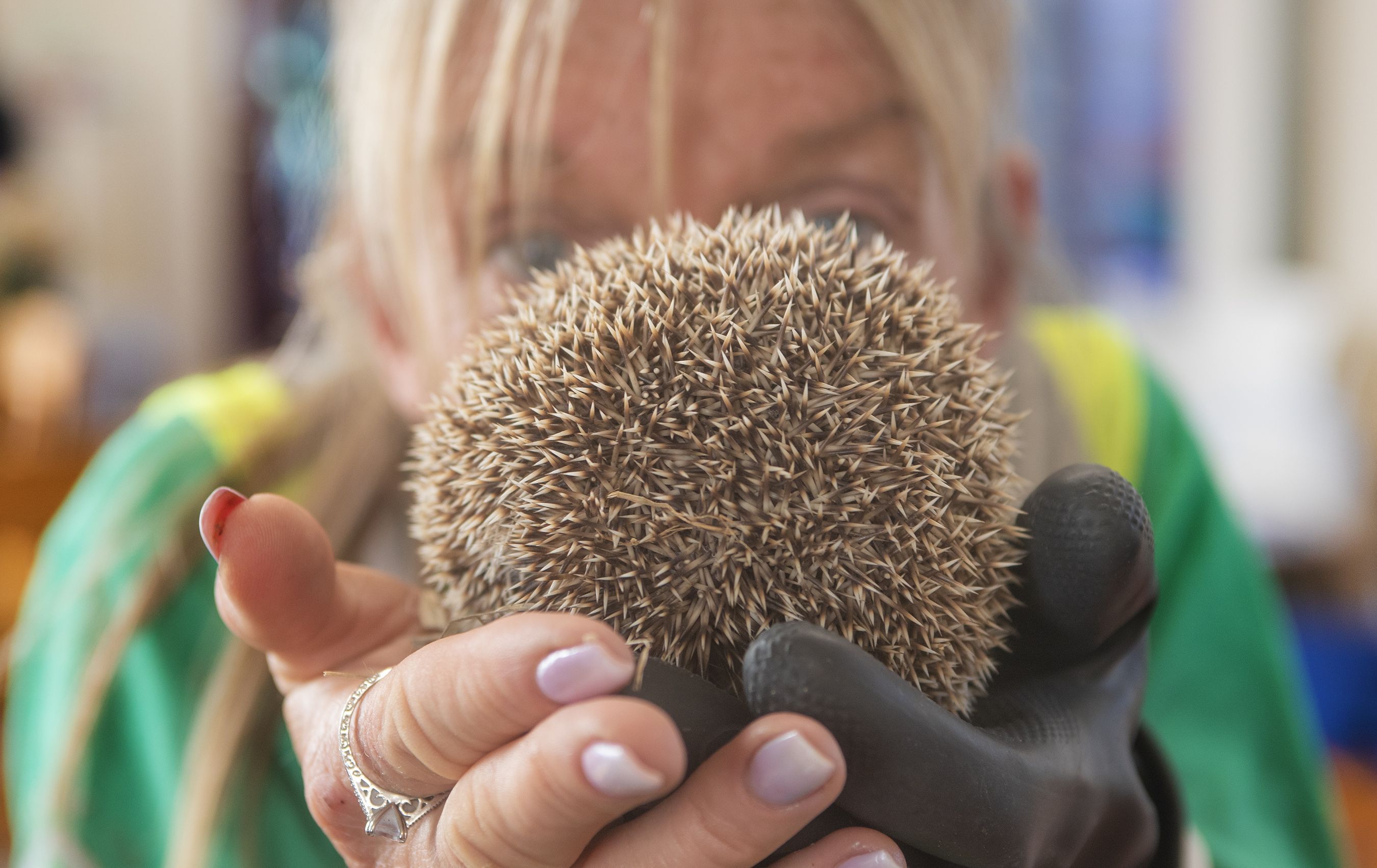
It’s a volunteer-run project where the main attraction is of course the animals – the majority of them rescue creatures given a new home after their former owners gave them up for one reason or another.
The busy farmyard babble of donkeys, goats, sheep, rabbits, tortoises, chickens and ducks seems incongruous just yards away from the terraced streets of St James’ and the incessant swish of the motorway, but it has quickly become part of the community, bringing the town and country together in a harmonious and welcoming environment.
The desire to keep the attraction free means it’s a constant scramble for funding sources, but productive and imaginative partnerships with statutory agencies and outside bodies are constantly being pursued to secure the future of the city farm.
Says Damian Lindsay: "We have people that come down here with their own mental health issues. People can come down and be at one with nature. There are a lot of people who come in and talk to or pet the animals. Everyone has their own story.”
•The Crumlin River is a gorgeous natural gem which by turn babbles, gurgles and roars its way from Divis Mountain into Lough Neagh.
GONE FISHING: Crumlin and District Angling Club provide free lessons to nurture a love of the pursuit – and of nature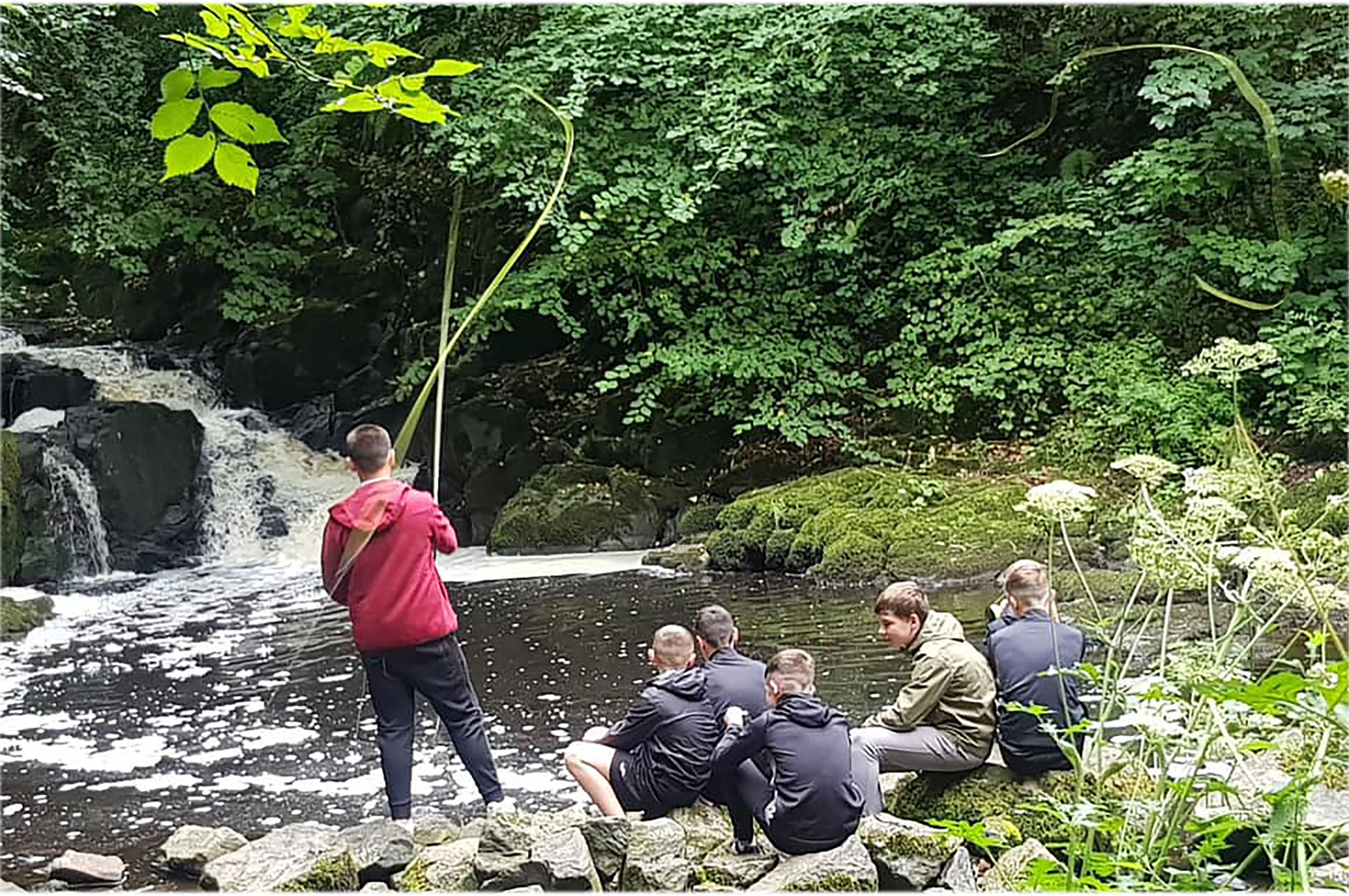
The Crumlin and District Angling Association has taken on the task of guarding and protecting the river – no easy job given the many dangers that beset the south Antrim natural environment, not least the slow death by official neglect of the lough itself.
Fishing is the association’s raison d’etre, but as with so many aspects of environmental pursuits, protection and development is key. The art of angling can only continue if there’s a healthy and vibrant river for members to fish in.
Introductory courses to the art of fishing are regularly offered, particularly to young people – courses which are as much about nurturing a love of the outdoors as they are about fostering a passion for angling. Indeed, the CDAA recognises that the two are inseparable.
Fish kills are a constant problem for every fishing club on every river on the island of Ireland, but the apathy of statutory bodies is as much an issue as the polluters. Too often the association has worked to identify culprits only to see them let off with a warning or a token fine.
“Quite frankly the system of reporting, investigating, ranking and bringing a case to completion is broken,” says David Kennedy of the CDAA. “Of the major fish kills across Northern Ireland between 2019 and 2023, amazingly 32 out of 49 saw no prosecution.”
•The Trócaire Lenten Campaign has been part of the fabric of Irish society for decades. It has since its formation over 50 years ago been the public face of this island's proud historic commitment to giving aid, succour and support wherever and whenever it is needed around the world.
Plugged in to the realities of life in the developing world, Trócaire's work has increasingly turned to the grim toll that climate change is taking on already struggling communities. In recent years the charity's famous Lenten Campaign has focused on the damage that man-made climate change is doing to at-risk peoples across the globe.
Through telling the vivid and deeply concerning personal stories of families and individuals from Ethiopia to Guatemala, and from Rwanda to Honduras, Trócaire have brought to life for the people of the west the existential threat posed by climate change to the farmers and pastoralists of countries that are paying the price for the planet's insistence on chasing profit at the expense of our future. It is daunting and challenging work – and it is work that is making a difference.
"This is what I love about my job," says Trócaire's David O'Hare. "Seeing the difference even small interventions can make to people’s lives and witnessing the quiet dignity, strength and resilience that people exhibit as they strive to make life better for their families is very humbling and inspiring."

